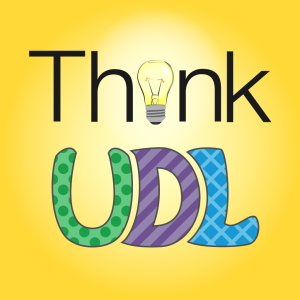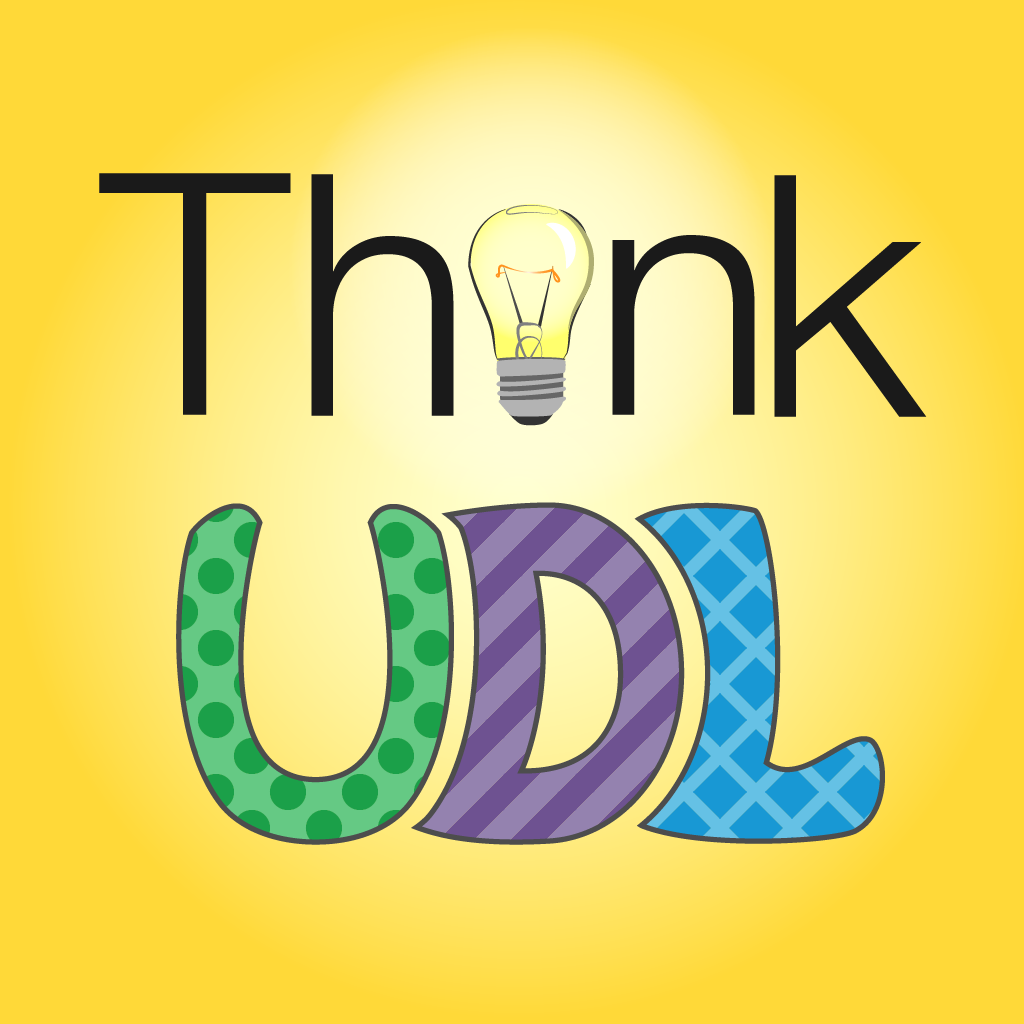Episodes

Thursday Apr 13, 2023
Systematic UDL Application in Disability and Diversity Programs with Zebadiah Hall
Thursday Apr 13, 2023
Thursday Apr 13, 2023
Welcome to Episode 106 of the Think UDL podcast: Systematic UDL Application in Disability and Diversity Programs with Zebadiah Hall. Zebadiah Hall is the Vice President in the Office of Diversity, Equity and Inclusion at the University of Wyoming in Laramie, Wyoming. Previously, he worked in Cornell University's Office of Disability Services and his graduate work has focussed on Universal Design for Learning and how to apply the UDL principles systematically. He brings a wealth of knowledge in UDL, Disability Services and Diversity, Equity, and Inclusion to our conversation. We discuss how UDL can be applied systemically to the practices of a university, including the intake of students for disability accommodations, how to organize a disability office using UDL, how intersectionality affects DEI work, how to approach difficult topics equitably, avoid cancel culture, and practice free speech in all its forms.

Thursday Mar 23, 2023
Collaborative Neurodiversity Institute with Sarah Mooney
Thursday Mar 23, 2023
Thursday Mar 23, 2023
Welcome to Episode 105 of the Think UDL podcast: Collaborative Neurodiversity Institutes with Sarah Mooney. Sarah Mooney is the Associate Director of the Learning Effectiveness Program at the University of Denver in Denver, Colorado. The Learning Effectiveness Program is an academic support program for students with learning disabilities that supports learning and neurodiversity at the University of Denver. Since 1982, the LEP has developed innovative and comprehensive supports for their students and serves over 350 students each year. Together with the Office of Teaching and Learning and representatives from across campus including Disability Services and Faculty Affairs, they have put together a very successful Neurodiversity Institute for the faculty that is growing and improving the teaching and learning landscape as well as student success broadly at University of Denver. In this conversation we learn all about the Neurodiversity Institute and discuss the impetus for such an institute for faculty, the collaboration across campus that has made it a success, and the long-standing student-focussed support program for neurodiverse students from which it came. We also hear advice and encouragement from Sarah for implementing something similar at your institution.

Sunday Mar 12, 2023
More Fluid Mobile Learning with Christina Moore
Sunday Mar 12, 2023
Sunday Mar 12, 2023
Welcome to Episode 104 of the Think UDL podcast: More Fluid Mobile Learning with Christina Moore. Chrisitina Moore is the Associate Director of the Center for Excellence in Teaching and Learning at Oakland University in Rochester, Michigan. Christina has been on the podcast once before to talk about Online Faculty Learning Communities on Episode 38, and she is back on the podcast to talk with me about her book Mobile-Mindful Teaching and Learning: Harnessing the Technology That Students Use Most. In today’s episode, we discuss how learners interface with materials, instructors, and each other through mobile devices, define characteristics of fluid learning and talk about learning ecologies and how they are all important steps to understanding mobile-mindful teaching and learning. We talk about creating ecosystems for learning and how to encourage social learning through well-designed learning environments. Christina is full of ideas to take away barriers for students by using the technology they have right at their fingertips.

Friday Feb 24, 2023
Active Learning Online with Joanne Ricevuto and Laura McLaughlin
Friday Feb 24, 2023
Friday Feb 24, 2023
Welcome to Episode 103 of the Think UDL podcast: Active Learning Online with Joanne Ricevuto and Laura McLaughlin. Joanne Ricevuto is the Assistant Vice President of Instructional Success at Harcum College in Bryn Mawr, Pennsylvania, and Laura McLaughlin is the Director of Graduate Education at Neumann University in Aston, PA. Together they have co-authored the book Engaging Virtual Environments: Creative Ideas and Online Tools to Promote Student Interaction, Participation, and Active Learning published by Stylus Publishing. Laura and Joanne have put together a jam-packed resource for online instructors that discusses the many roles an online instructor must take on to lead an effective course. They also offer multiple ways to interact with students in synchronous and asynchronous settings. I have already enjoyed this book so much and I was honored to be asked to write the foreword for it. Join today’s thoughtful conversation and learn about multiple ways to engage your students online!

Monday Feb 13, 2023
Upskill, Reskill, Thrive with James McKenna
Monday Feb 13, 2023
Monday Feb 13, 2023
Welcome to Episode 102 of the Think UDL podcast: Upskill, Reskill, Thrive with James McKenna. James McKenna is a speaker, learning consultant and author of the just released book Upskill, Reskill, Thrive: Optimizing Learning and Development in the Workplace published by CAST professional publishing, the very same people who brought us the UDL guidelines! In this conversation, James draws from his varied background in the military, education, and professional learning to outline a new approach to learning and development. No more staff training where everyone blindly clicks through choices without even thinking! We delve into learning in the modern world, and who our contemporary learners are. He explains how to create emotional, intellectual, and strategic connections for your learners and why it is important and even discusses the difference between friction and rigor. Thank you for tuning in to learn about a new approach to learning and development based on Universal Design for Learning!

Monday Jan 30, 2023
Build Engaging Courses Right from the Start with Tim Van Norman
Monday Jan 30, 2023
Monday Jan 30, 2023
Welcome to Episode 101 of the Think UDL podcast: Build Engaging Courses Right from the Start with Tim Van Norman. Tim Van Norman is an Instructional Technologist at Irvine Valley College in Irvine, California, which is part of the California Community Colleges system. He also hosts his very own podcast called The Higher Ed Tech podcast. Today, he will be discussing his personal views on instructional design and educational technology which are not associated with or speak for Irvine Valley College. In today’s episode, we talk about not just how students learn but where they learn, how we should think about deadlines, especially in relationship to one’s Learning Management system, where the work should be put in to improve a course (will it be early or later and how much), and what are his suggestions for engaging educational technology for online and in-person learning.

Thursday Jan 19, 2023
UDL Critiques with Eric Moore
Thursday Jan 19, 2023
Thursday Jan 19, 2023
Welcome to Episode 100 of the Think UDL podcast: UDL Critiques with Eric Moore. Eric Moore is the Director of Learning Technology at the Kennedy Krieger Institute in Baltimore, MD. He is also the founder and owner of Innospire Education Consulting through which he consults with organizations on UDL, instructional design, and accessibility. Eric also was my very first guest on the Think UDL podcast back in 2018. And as this, the 100th episode was approaching, I asked him if he wouldn’t mind talking with me again about the state of UDL and how it has progressed and changed in higher education since our first conversation. And since we have been working on an article with some esteemed colleagues on various critiques of UDL, we thought it would be a needed conversation for the public to hear. So in this episode, we will discuss the various critiques we have heard as UDL practitioners in higher education over the last 5 years and offer some answers along with some further discussion in a way that seeks to further strengthen UDL in higher education and beyond.

Monday Jan 02, 2023
Can Tech Help Create Belonging? with Rachel Kruzel
Monday Jan 02, 2023
Monday Jan 02, 2023
Welcome to Episode 99 of the Think UDL podcast: Can Tech Help Create Belonging? with Rachel Kruzel. After over ten years working as an Assistive Technology and Accommodations Specialist in Disability Resource Offices at various higher ed institutions, Rachel Kruzel is now the Higher Education Specialist at TextHelp where she supports colleges and universities to implement accessibility based solutions to help create more inclusive, equitable, and accessible learning environments for all students. During her time in higher ed, she built and developed assistive technology programs at both schools she worked at, as well as coordinated the provision of accommodations. Rachel is a national expert in the areas of assistive technology, digital accessibility, accessible course materials, and accommodation provision around testing and notetaking. In this episode, we discuss how technology helps, hinders, and relates to access, inclusion and belonging. We discuss a culture of collaboration on campus and how technology can be a catalyst for change on a campus that values diversity, accessibility, and inclusion.

Thursday Dec 22, 2022
Multiple Means of Music Education with Reba Wissner
Thursday Dec 22, 2022
Thursday Dec 22, 2022
Welcome to Episode 98 of the Think UDL podcast: Multiple Means of Music Education with Reba Wissner. Reba Wissner is an Assistant Professor of Musicology in the Schwob School of Music at Columbus State University in Columbus, Georgia. Reba recently presented at a musicology conference about her UDL interventions in her college music courses and I had heard of what she is doing through another professional organization, so I was very excited to connect with her on this topic. In today’s conversation, Reba and I discuss not only the “what” of multiple means of representation when it comes to music education courses, but also why we need to do this right now, and how to do this. And don’t worry if you aren’t in the music department, we also talk about the ideas surrounding this and offer some great ideas if you are interested in diversifying your course! The resources we mention can be found on the ThinkUDL.org website for episode 98.

Friday Dec 09, 2022
Community is the Key to Accessibility with Mark Nichols
Friday Dec 09, 2022
Friday Dec 09, 2022
Welcome to Episode 97 of the Think UDL podcast: Community is the Key to Accessibility with Mark Nichols. Mark Nichols is the Senior Director of Universal Design and Accessible Technologies at Virginia Tech in Blacksburg, Virginia. Mark’s team has had great success in implementing accessible learning materials campus-wide with the help of many offices and fellow advocates on campus. In today’s conversation, we will talk about how to create a culture of accessibility, how he has been able to improve and think systematically about accessible materials at his university, and the various tools, ideas, and programs Virginia Tech is employing to help students achieve their goals and succeed in their academic pursuits. Mark mentions Virginia Tech’s C. A. L. M. campaign which stands for Choose Accessible Learning Materials in which his team introduces a new accessibility idea periodically on campus with the slogan, “Keep C. A. L. M. and use accessible slides…” (or PDFs or some other tool). He would be happy to share the templates they used if anyone would like to borrow this campaign or learn more. Just reach out to Mark via email which is linked on our resources page for this episode at ThinkUDL.org. Thanks so much for listening to this conversation.

